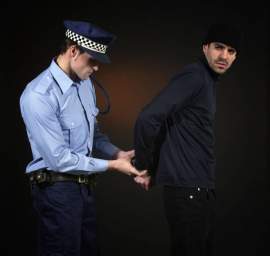
The Facts on Insanity Claims

An insanity plea is a defense tactic to obtain the dismissal or a reduction in the severity of the charges which a client is facing. A plea of insanity can be made on the basis of disorders including schizophrenia and dementia. There is even a specific set of testing provisions for finding insanity in such a case, although an insanity plea is not limited to defendants suffering from pre-existing psychosis. In order for a plea of insanity to be accepted in a court of law the defense must prove one of two different qualifications. The first thing a defense attempting to enter a plea of insanity must prove is that the defendant had or has a serious mental illness, disorder, or defect. The second requirement of a successful insanity plea is that the defense must prove that the defendant had a reduced capacity at the time of the killing to determine right from wrong or to recognize that his or her actions were wrong (see also M'Naghten Test). New York law simplifies these statutes to two easy to comprehend definitions of mental culpability: the defendant must know or appreciate the nature or consequences of his or her conduct and be unable to appreciate that his or her conduct was wrong. A plea of insanity is usually entered as a pretrial motion. When pursuing an insanity plea the defendant is subjected to interviews with psychiatrists employed by both the defense and the prosecution. If the psychiatrists agree that the defendant was suffering from a diminished capacity to understand his or her culpability, the defendant will not be placed in a penal institution. If the plea of insanity is accepted, the defendant will be assigned to mandatory clinical treatment until such time as the person is believed to no longer be a danger to themselves or to other people. One potential drawback of a defense predicated on an insanity plea is that the individual may be subjected to treatment for longer than they would have been incarcerated if they had been found guilty. As a result, some defense attorneys have employed a defense claiming temporary insanity. A temporary insanity plea is the claim that a defendant was suffering from a bout of insanity at the time the crime was committed, but is no longer insane. When a plea of insanity claims that the insanity was only temporary, it will result in the defendant being released without having to undergo psychiatric treatment. Temporary insanity does not excuse insanity caused by the actions of the defendant. If the insanity is caused by the willful consumption of alcohol or drugs, then an insanity defense is not permitted. Arguments of diminished capacity due to unwilling consumption, such as a drink being spiked, are permitted in a temporary insanity plea. Unlike most other criminal proceedings, where the burden of evidence lies on the prosecution to prove the evidence is true or false, proving an insanity plea places the burden upon the defense. The defense is required to provide a high level of evidence which demonstrates that the defendant suffers from a diminished ability to distinguish right from wrong. A plea of insanity differs from a claim that the defendant is unable to participate fully in his or her own defense.



















